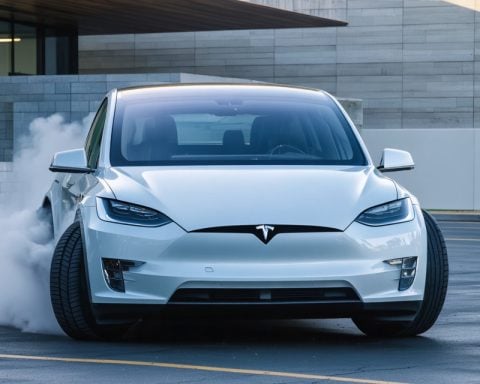Why Electric Cargo Bikes are Game Changers
In cities where space is at a premium, electric cargo bikes emerge as a versatile alternative to traditional vehicles, perfect for carrying heavy loads or even little passengers. Their eco-friendly design not only reduces carbon footprints but also simplifies those daily errands. When considering which model fits your lifestyle best, understanding your primary usage is essential.
Are you looking to transport children safely to school? Do you need to run errands, or haul bulky items effortlessly? Knowing your needs will guide your decision.
Among the popular choices, the longtail electric bike offers a seamless blend of traditional cycling experience and cargo capacity. With its extended rear rack, it accommodates multiple children securely, while its narrow width allows for deft navigation through crowded streets. Yet, this model requires some adjustment, especially in tight spots.
If massive loads are part of your routine, the biporteur electric bike might be your best option. Featuring an ample front storage area and superior stability, this model allows for effortless movement, even under heavy weight. Perfect for families or small businesses, it ensures safety for passengers while maintaining an agile profile in urban traffic.
For those transporting significant cargo frequently, the triporteur electric bike stands unrivaled. With three wheels for superior stability and a hefty load limit, it’s like a specialized utility vehicle for urban dwellers. However, its bulk can be challenging in tight spaces.
In conclusion, whether you lean towards a longtail for family outings or a triporteur for heavy-duty hauling, electric cargo bikes aren’t just a trend—they’re the future of city commuting.
Revolutionizing Urban Logistics: The Rise of Electric Cargo Bikes
Electric cargo bikes are transforming urban transportation by addressing the growing demands for efficient and sustainable logistics in congested city environments. With their increasing popularity, it’s essential to explore the latest innovations, features, and market trends shaping this emerging segment.
Features and Innovations
Electric cargo bikes come with a variety of features catering to diverse cycling needs. Many models integrate advanced technologies, such as:
– Smart Connectivity: Some cargo bikes now offer GPS tracking and smartphone apps, allowing users to manage routes and monitor cargo conditions in real time.
– Integrated Lighting Systems: Enhanced safety features include built-in lights and reflective materials, ensuring visibility during low-light conditions.
– Modular Design: New generations of electric cargo bikes often provide customizable kits, allowing cyclists to modify their bikes for specific cargo needs, from child seats to additional storage compartments.
Use Cases
Electric cargo bikes are perfect for various urban scenarios:
– Family Transport: Parents utilize longtail bikes for school commutes, ensuring children travel securely while enjoying the outdoors.
– Small Business Logistics: Retailers and service providers now use cargo bikes as a sustainable option for deliveries, drastically reducing transportation costs compared to vans or cars.
– Food and Beverage Delivery: Restaurants embrace cargo bikes for local deliveries, minimizing their environmental impact while maintaining fresh products.
Pros and Cons
Pros:
– Eco-Friendly: Electric cargo bikes emit zero emissions, making them a viable option for cities striving for sustainability.
– Cost-Effective: Over time, the savings on fuel and parking fees for electric cargo bikes far outweigh initial purchasing costs.
– Health Benefits: Users benefit from physical activity while integrating cycling into their daily routines.
Cons:
– Initial Investment: The upfront cost can be higher than traditional bicycles or even some electric scooters.
– Limited Range: Depending on the model and battery capacity, some cargo bikes may have range limitations that need careful consideration for longer trips.
– Space Constraints: Larger models, like triporteurs, may struggle in narrow urban spaces or crowded bike lanes.
Security Aspects
As urban cycling becomes more prevalent, security features in electric cargo bikes have evolved:
– Locking Mechanisms: Many electric cargo bikes now come equipped with enhanced locking systems, deterring theft in urban areas.
– Tracking Devices: Some manufacturers incorporate anti-theft GPS tracking, providing peace of mind if the bike is stolen.
Market Trends and Predictions
The electric cargo bike market is set to grow significantly in the coming years, driven by:
– Increased Urbanization: As cities continue to grow, the need for environmentally friendly transport solutions will rise.
– Government Incentives: Many governments are introducing subsidies and incentives for electric vehicles, including cargo bikes, to promote sustainability.
– Rising Health Consciousness: A global shift towards healthier lifestyles is encouraging more people to opt for cycling as their primary mode of transport.
Conclusion
Electric cargo bikes represent a groundbreaking shift in urban transport, merging functionality with sustainability. As technology advances and more individuals embrace this eco-friendly option, these bikes are not merely a trend—they are an essential component of the future urban landscape.
For more information on electric cargo bikes and their benefits, visit CarBike.


















